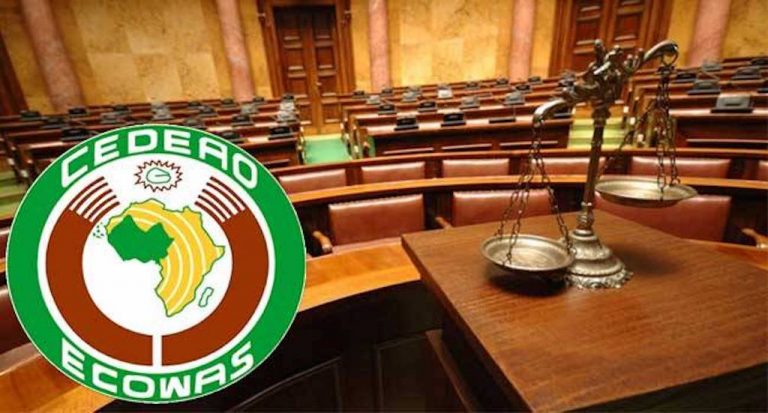News
ECOWAS Court dismisses case on Kudirat Abiola’s assassination

The Community Court of Justice, ECOWAS, has dismissed a case filed by Khalifa Abiola and two others against the Federal Government of Nigeria over alleged human rights violations concerning the assassination of the late Mrs. Kudirat Abiola.
The court ruled that the applicants lacked the legal capacity to sue, as they failed to establish a direct relationship with Mrs. Abiola or present any legal mandate to act on behalf of her estate.
Khalifa Abiola, Moriam Abiola, and Hadi Abiola had brought the case, with suit number ECW/CCJ/APP/62/22, before the court, alleging that Mrs. Kudirat Abiola was assassinated in 1996 while advocating for her husband’s release from detention. They contended that the Nigerian government violated her fundamental human rights by failing to hold her killers accountable, despite a Commission of Inquiry identifying a key suspect, Sergeant Barnabas Jebila.
Read also: Ireti Kingibe accuses Natasha Akpoti-Nduaghan of not following Senate rules
The applicants argued that the Nigerian government’s inaction in bringing the perpetrators to justice was a clear violation of Mrs. Abiola’s rights to life, dignity, and freedom from torture. They also claimed that the government’s failure to provide adequate protection for Mrs. Abiola and her family was a breach of its obligations under international human rights law.
However, the ECOWAS Court found that the applicants had not demonstrated the necessary legal capacity to sue on behalf of Mrs. Abiola’s estate. The court stated, “The court noted that the applicants… had not demonstrated legal capacity to sue on behalf of the late Mrs. Kudirat Abiola’s estate.” This lack of legal capacity was deemed fatal to the applicants’ case, leading to its dismissal.
While dismissing the case, the ECOWAS Court also rejected Nigeria’s objections regarding its jurisdiction, affirming its competence to hear cases involving alleged human rights violations by member states. However, it clarified that its role does not include acting as an appellate body over national court rulings.
The ruling was delivered by a panel of judges, including Justice Sengu Mohamed Koroma (Presiding), Hon. Justice Gberi-bè Ouattara (Member), and Hon. Justice Edward Amoako Asante (Judge Rapporteur).
Join the conversation
Support Ripples Nigeria, hold up solutions journalism
Balanced, fearless journalism driven by data comes at huge financial costs.
As a media platform, we hold leadership accountable and will not trade the right to press freedom and free speech for a piece of cake.
If you like what we do, and are ready to uphold solutions journalism, kindly donate to the Ripples Nigeria cause.
Your support would help to ensure that citizens and institutions continue to have free access to credible and reliable information for societal development.




























